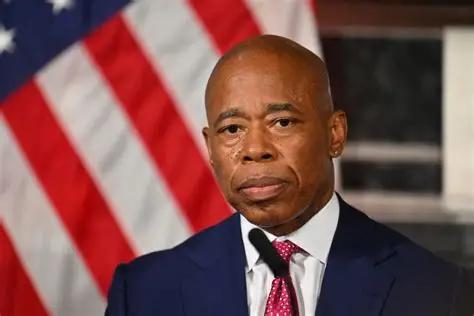New York City’s political landscape was thrown into fresh turmoil on Thursday as Mayor Eric Adams announced he would endorse Andrew Cuomo in the city’s mayoral race, despite months of acrimony between the two men.
Adams, who abandoned his own re-election bid last month following dismal polling numbers, revealed his decision in an interview with The New York Times. The move marks a dramatic reversal for the mayor, who only weeks earlier had branded Cuomo a “snake and a liar” and accused him of sidelining Black candidates throughout his political career.
The contest to succeed Adams has so far been dominated by Cuomo, the former governor of New York, and Zohran Mamdani, the democratic socialist whose surge in the polls has captured international attention. Mamdani’s rise has been heralded by many on the American left as a sign of renewed energy within progressive politics, while Cuomo has sought to re-establish himself after his resignation from the governorship in 2021.
Adams, however, insisted his endorsement was motivated by a desire to mobilise minority communities who, he argued, had borne the brunt of gentrification and neglect. “I think that it is imperative to really wake up the Black and brown communities that have suffered from gentrification on how important this race is,” he told the newspaper.
“They have watched their rents increase in terms of gentrification and they have been disregarded in those neighbourhoods, and I’m going to go to those neighbourhoods and speak one on one with organisers and groups and I’m going to walk with the governor in those neighbourhoods and get them engaged,” he added.
Later in the day, at an unrelated press conference, Adams confirmed his plans when pressed by reporters. “I’ll be with Andrew later today,” he said.
The announcement followed a conspicuous public appearance by the pair on Wednesday evening, when they were spotted courtside at Madison Square Garden for the New York Knicks’ season opener. Their outing came only hours after a heated mayoral debate featuring Cuomo, Mamdani and the Republican nominee Curtis Sliwa.
During the debate, both Mamdani and Sliwa were unequivocal in rejecting the prospect of Adams’s support. Mamdani, who has built his campaign on a platform of housing reform and economic justice, said he would not accept the mayor’s endorsement under any circumstances. Sliwa, the long-time conservative activist and founder of the Guardian Angels, echoed that sentiment.
Adams’s decision to back Cuomo is the latest twist in a turbulent year for the mayor. Earlier in 2024, he launched his re-election campaign as an independent after breaking with the Democratic Party. That campaign was soon overshadowed by his indictment on federal corruption charges. The case was later dismissed by President Donald Trump in exchange for Adams’s cooperation with federal immigration raids across New York City, a deal that drew sharp criticism from civil rights groups and immigrant advocates.
The mayor’s endorsement is expected to bolster Cuomo’s standing in communities where Adams retains influence, particularly among Black and Latino voters in outer-borough neighbourhoods. Yet it also risks further alienating progressives, many of whom remain sceptical of Cuomo’s record and view Mamdani as the only candidate capable of delivering meaningful change.
For Cuomo, the backing of Adams represents both an opportunity and a challenge. While it may provide access to grassroots networks and local organisers, it also ties him to a mayor whose popularity has plummeted amid scandal and controversy.
With the election still months away, the race remains volatile. Mamdani’s insurgent campaign continues to draw national attention, while Sliwa seeks to consolidate conservative support. Cuomo, meanwhile, must navigate the complexities of an endorsement that only weeks ago would have seemed unthinkable.



